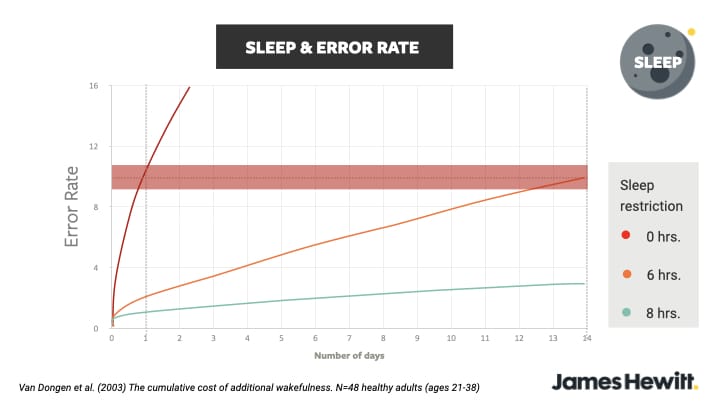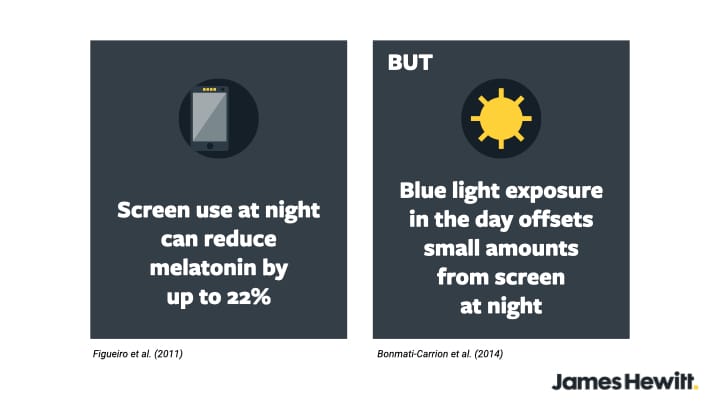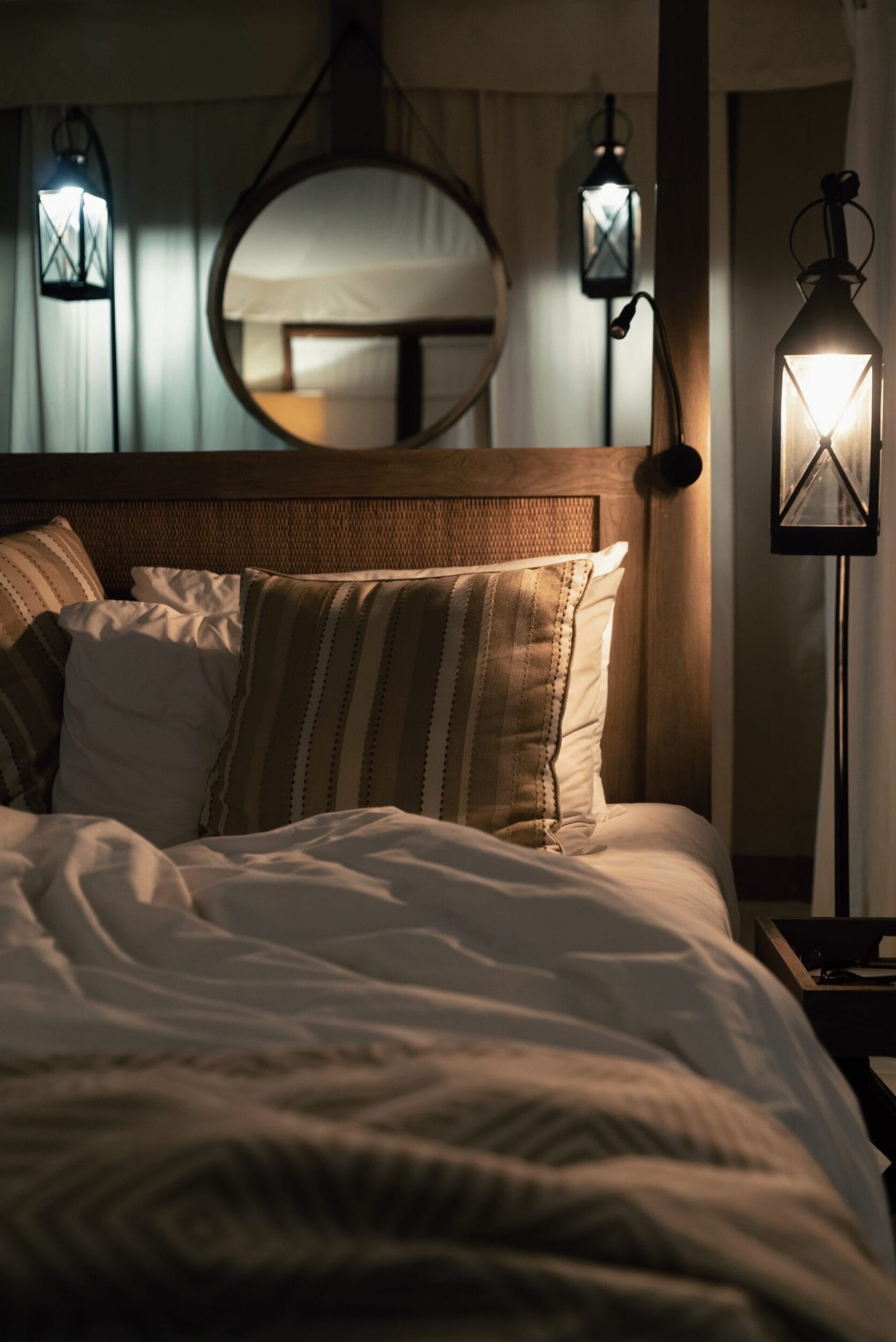Most of us would like to wake-up without an alarm, feeling full of energy and then be able to fall asleep without too much difficulty, at the end of the day. Unfortunately for many people, that is not the case, as more than 1 in 3 people don’t get enough sleep1,2, which means that they don’t sleep for at least 7 hours per night3,4,5. Read on to find out how to improve your sleep, health and performance.
Performance deficits equivalent to being legally drunk
Even staying awake for long periods results in a measurable performance hit. After we’ve been awake for 18 hours, equivalent to working from 08:00 am until 02:00 am the next day, cognitive performance is equivalent to having a blood alcohol concentration of 0.05% – classed as legally drunk in many countries6.
https://vimeo.com/451459976/05c100b64c
Impaired performance becomes the new normal
Did you know that sleeping for 6 hours per night, for two weeks, results in decreases in cognitive performance equivalent to being sleep-deprived for an entire night?7 Perhaps what is worse, experiments show that we don’t even notice how bad our performance is. Impaired performance becomes the new normal.

Life can get in the way of sleep
Work demands and other commitments can stop us from getting enough sleep. But our habits can also play a role, as caffeine, alcohol, not enough bright light during the day, and too much bright light, later on, stop us getting a good night’s rest. Many of us are sleep deprived most of the time, we don’t realise. But we all need and deserve to get enough sleep. It can be frustrating and tiring when we don’t, so here are three top tips for improving your sleep.
1) Limit Caffeine & Alcohol
Limit your caffeine and alcohol consumption. Even if you think that you’re immune to effects of caffeine, its long half-life means that it could still be disrupting your sleep. You’ve probably just got used to it. The evidence suggests that, even if you stop drinking coffee 6 hours before you go to bed, it could reduce your sleep time by more than 1 hour8,9. Try to avoid caffeinated drinks after midday. Similarly, many people think that alcohol is a sleep aid, while it can help you to get to sleep more quickly; this comes at the cost of more disrupted sleep, later on10. If you are going to drink alcohol, drinking less and stopping earlier reduces the impact on sleep, even if it doesn’t eliminate it. You can find two short videos about the relationship between alcohol and sleep, and between coffee and sleep.
2) Pay Attention To Light – Dark Cycles
Light is the most potent signal for regulating your body clock. Unfortunately, many of us live in a continually dull environment 11. Bright light at the right times, and contrast, is crucial for maintaining a stable circadian rhythm. Get outside and get some bright, natural light each morning, for at least 30 minutes. Later, try to limit your bright light exposure in the hours before you go to bed12. Avoid or dim the lights and select ‘night mode’, to make the screens on your devices more orange, where possible. This will help to avoid suppressing melatonin secretion, but remember that contrast between the bright light in the day and dark in the evening is critical13. You can read more about social jetlag.

3) Try To Go To Sleep And Wake Up At A Regular Time
One of the most effective things you can do to improve your sleep is to go to bed and wake up at a regular time, every day. Otherwise, you are constantly shifting your body clock, which is like living in a constant state of jetlag, even if you’re not travelling 14. Go to bed at a time that ensures you can get at least 7 hours of sleep per night, which means being in bed for at least 7.5 hours, for most people.
Sometimes, we can’t sleep enough, and there’s nothing we can do about it, but if you follow these three tips, whenever you can, you’ll be on track to improve your sleep, health and your cognitive performance.
References
1. Leka S, Jain A. Health impact of psychosocial hazards at work: An overview. Geneva: World Health Organisation; 2010.
2. Harris Interactive. American Psychological Association. 2011 Mar. Stress in the Workplace: Survey Summary URL: https:/ /www.apa.org/news/press/releases/phwa-survey-summary.pdf [accessed 2017-06-27] [WebCite Cache ID 6oWGsIU9c]
3. Wild CJ, Nichols ES, Battista ME, Stojanoski B, Owen AM. Dissociable effect of selfreported daily sleep duration on high-level cognitive abilities. Sleep. 2018;in press(September):1–11
4. Hirshkowitz M, Whiton K, Albert SM, Alessi C, Bruni O, DonCarlos L, et al. National sleep foundation’s sleep time duration recommendations: Methodology and results summary. Sleep Heal [Internet]. 2015;1(1):40–3. Available from: https://dx.doi.org/10.1016/j.sleh.2014.12.01
5. Watson NF, Badr MS, Belenk G, Bliwise DL. Recommended amount of sleep for a healthy adult. Am Acad Sleep Med Sleep Res Soc. 2015;38(6):843–4.
6. Williamson AM, Feyer A. Moderate sleep deprivation produces impairments in cognitive and motor performance equivalent to legally prescribed levels of alcohol intoxication. 2000 p. 649–55.
7. Dongen HPA Van, Maislin G, Mullington JM, Dinges DF. The Cumulative Cost of Additional Wakefulness : Dose-Response Effects on Neurobehavioral Functions and Sleep Physiology From Chronic Sleep Restriction and Total Sleep Deprivation. Sleep. 2003;26(2):117–26.
8. Burke TM, Markwald RR, McHill AW, Chinoy ED, Snider JA, Bessman SC, et al. Effects of caffeine on the human circadian clock in vivo and in vitro. Sci Transl Med. 2015;7(305).
9. Christopher D, Timothy R, John S, Thomas R. Caffeine Effects on Sleep Taken 0, 3, or 6 Hours before Going to Bed. J Clin Sleep Med [Internet]. 2013;9(11):1195–200. Available from: https://scholars.unh.edu/honors/103
10. Ebrahim IO, Shapiro CM, Williams AJ, Fenwick PB. Alcohol and Sleep I: Effects on Normal Sleep. Alcohol Clin Exp Res. 2013;37(4):539–49.
11. Roenneberg T, Allebrandt K V., Merrow M, Vetter C. Social jetlag and obesity. Curr Biol. 2012;22(10):939–43.
12. Na N, Choi H, Jeong KA, Choi K, Choi K, Choi C, et al. Smartphone Use at Night Affects Melatonin Secretion, Body Temperature, and Heart Rate. Korean Soc Emot Sensib. 2018;20(4):135–42.
13. Bonmati-Carrion MA, Arguelles-Prieto R, Martinez-Madrid MJ, Reiter R, Hardeland R, Rol MA, et al. Protecting the melatonin rhythm through circadian healthy light exposure. Int J Mol Sci. 2014;15(12):23448–500.
14. Wong PM, Hasler BP, Kamarck TW, Muldoon MF, Manuck SB. Social Jetlag, chronotype, and cardiometabolic risk. J Clin Endocrinol Metab. 2015;100(12):4612–20.

